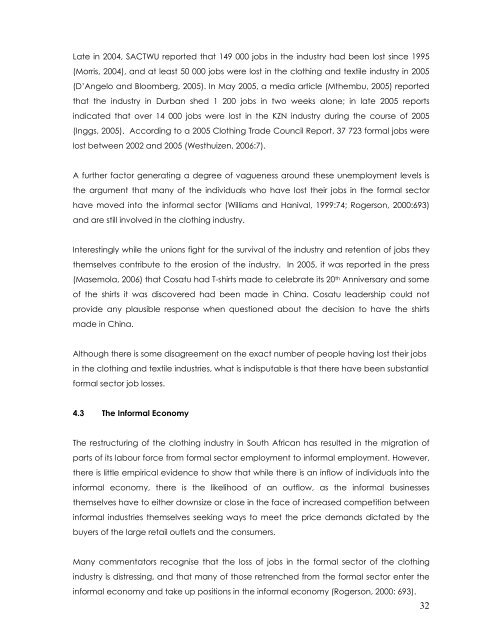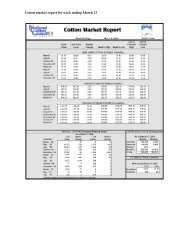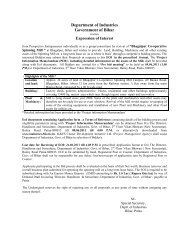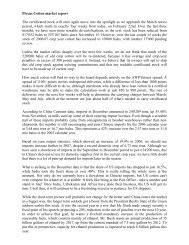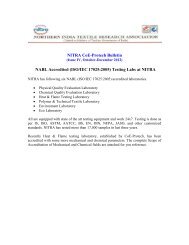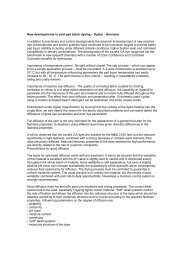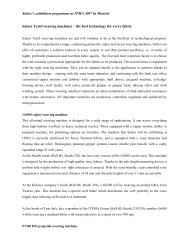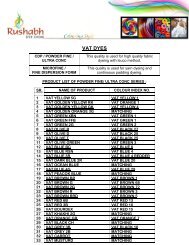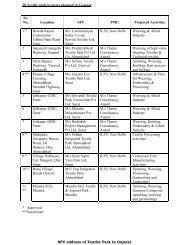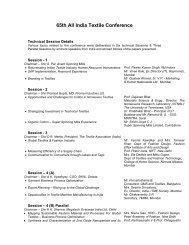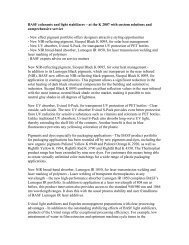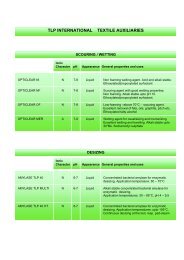You also want an ePaper? Increase the reach of your titles
YUMPU automatically turns print PDFs into web optimized ePapers that Google loves.
Late in 2004, SACTWU <strong>report</strong>ed that 149 000 jobs in the industry had been lost since 1995<br />
(Morris, 2004), and at least 50 000 jobs were lost in the clothing and textile industry in 2005<br />
(D’Angelo and Bloomberg, 2005). In May 2005, a media article (Mthembu, 2005) <strong>report</strong>ed<br />
that the industry in Durban shed 1 200 jobs in two weeks alone; in late 2005 <strong>report</strong>s<br />
indicated that over 14 000 jobs were lost in the KZN industry during the course of 2005<br />
(Inggs, 2005). According to a 2005 Clothing Trade Council Report, 37 723 formal jobs were<br />
lost between 2002 and 2005 (Westhuizen, 2006:7).<br />
A further factor generating a degree of vagueness around these unemployment levels is<br />
the argument that many of the individuals who have lost their jobs in the formal sector<br />
have moved into the informal sector (Williams and Hanival, 1999:74; Rogerson, 2000:693)<br />
and are still involved in the clothing industry.<br />
Interestingly while the unions fight for the survival of the industry and retention of jobs they<br />
themselves contribute to the erosion of the industry. In 2005, it was <strong>report</strong>ed in the press<br />
(Masemola, 2006) that Cosatu had T-shirts made to celebrate its 20 th Anniversary and some<br />
of the shirts it was discovered had been made in China. Cosatu leadership could not<br />
provide any plausible response when questioned about the decision to have the shirts<br />
made in China.<br />
Although there is some disagreement on the exact number of people having lost their jobs<br />
in the clothing and textile industries, what is indisputable is that there have been substantial<br />
formal sector job losses.<br />
4.3 The Informal Economy<br />
The restructuring of the clothing industry in South African has resulted in the migration of<br />
parts of its labour force from formal sector employment to informal employment. However,<br />
there is little empirical evidence to show that while there is an inflow of individuals into the<br />
informal economy, there is the likelihood of an outflow, as the informal businesses<br />
themselves have to either downsize or close in the face of increased competition between<br />
informal industries themselves seeking ways to meet the price demands dictated by the<br />
buyers of the large retail outlets and the consumers.<br />
Many commentators recognise that the loss of jobs in the formal sector of the clothing<br />
industry is distressing, and that many of those retrenched from the formal sector enter the<br />
informal economy and take up positions in the informal economy (Rogerson, 2000: 693).<br />
32


